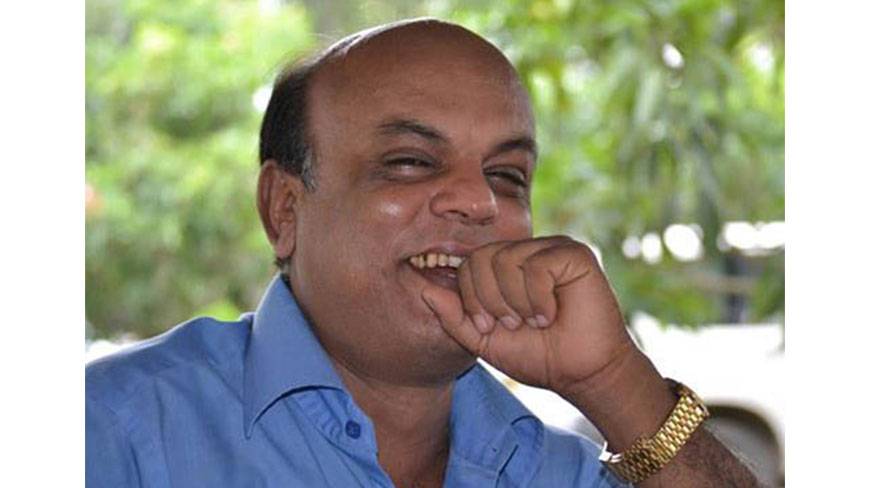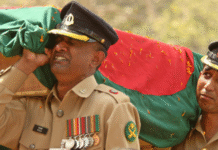The Rajshahi area and the University (RU) are both known as Jamaat-Shibir strongholds
Analysing the escape route and learning that the machete used for the murder was not made in Rajshahi, local police have said the killers of Prof Shafiul may have come from a neighbouring district.
Tracking mobile phone records and witnesses statements, police have guessed that the killers might have fled towards the neighbouring district of Chapainawabganj.
An official of the Rajshahi Metropolitan Police (RMP) told the Dhaka Tribune yesterday that they had also learned that Prof Shafiul had received death threats a few days ago.
He said the Rajshahi University sociology teacher had received a packet containing a note and a white shroud a few days before the murder. Police however was not yet sure who had sent him that packet.
Police yesterday also said they had recovered two syringe needles from the crime scene which they believed might have been used to sedate the professor so that he could not make any noise during the killing.
Unidentified assailants hacked Prof Shafiul Islam Lilon to death on Saturday afternoon in broad daylight near his Chouddopai residence in Rajshahi city.
Soon after the murder, a Facebook community page titled Ansar al Islam Bangladesh – 2 claimed responsibility. Many among the over 3,000 people that had liked the page of the “cyber jihadists” have shared contents generated by Jamaat-e-Islami and its student wing Chhatra Shibir, whom police are suspecting for the murder.
The Rajshahi area and the University (RU) are both known as Jamaat-Shibir strongholds. Slain RU Prof Shafiul have had several standoffs with the supporters of Jamaat-Shibir in the past.
In 2010, some pro-Jamaat newspapers circulated a news item that he had banned burqa – the Islamic veil – as the then chair of the university’s sociology department. At that time, Shafiul had sent rejoinders to some of those newspapers claiming that he had only expelled one female student from his class because she was cheating using her burqa.
In the rejoinder, paper cuttings of which the Dhaka Tribune reporter had accessed, he also explained that expelling a student wearing burqa from his class did not mean he banned the dress at his department. The Dhaka Tribune has learned that two of Shafiul’s junior colleagues, who were recruited when he was the chair, have been following that practice of not allowing burqa in examination halls in order to curb cheating.
A teacher of the university told this Dhaka Tribune correspondent that the recruitment of these two teachers had also sparked conflict between Shafiul and pro-Jamaat teachers. It was alleged that Shafiul had left out two pro-Jamaat candidates during that recruitment.
“At the moment, we are trying to confirm Jamaat-Shibir men’s involvement with the murder. Secular-minded people have always been the targets of this group,” KM Nahidul Islam, deputy commissioner of RMP, told the Dhaka Tribune yesterday. Asked if any militant group could be behind the murder, Nahidul said Jamaat was synonymous to militancy. “Keeping these in mind, we are now analysing the professor’s personal profile and his on-campus activities and affiliations,” he said.
On Monday, Rajshahi police showed 11 people arrested in the murder case filed in connection with the killing. The local chapter of Jamaat has confirmed that all of them were their supporters.
Shafiul, who researching on the sufi Bangla folk tradition Baul that Jamaat does not endorse, is the third teacher of the university killed in more or less the same fashion since 2004.
Source: Dhaka Tribune










